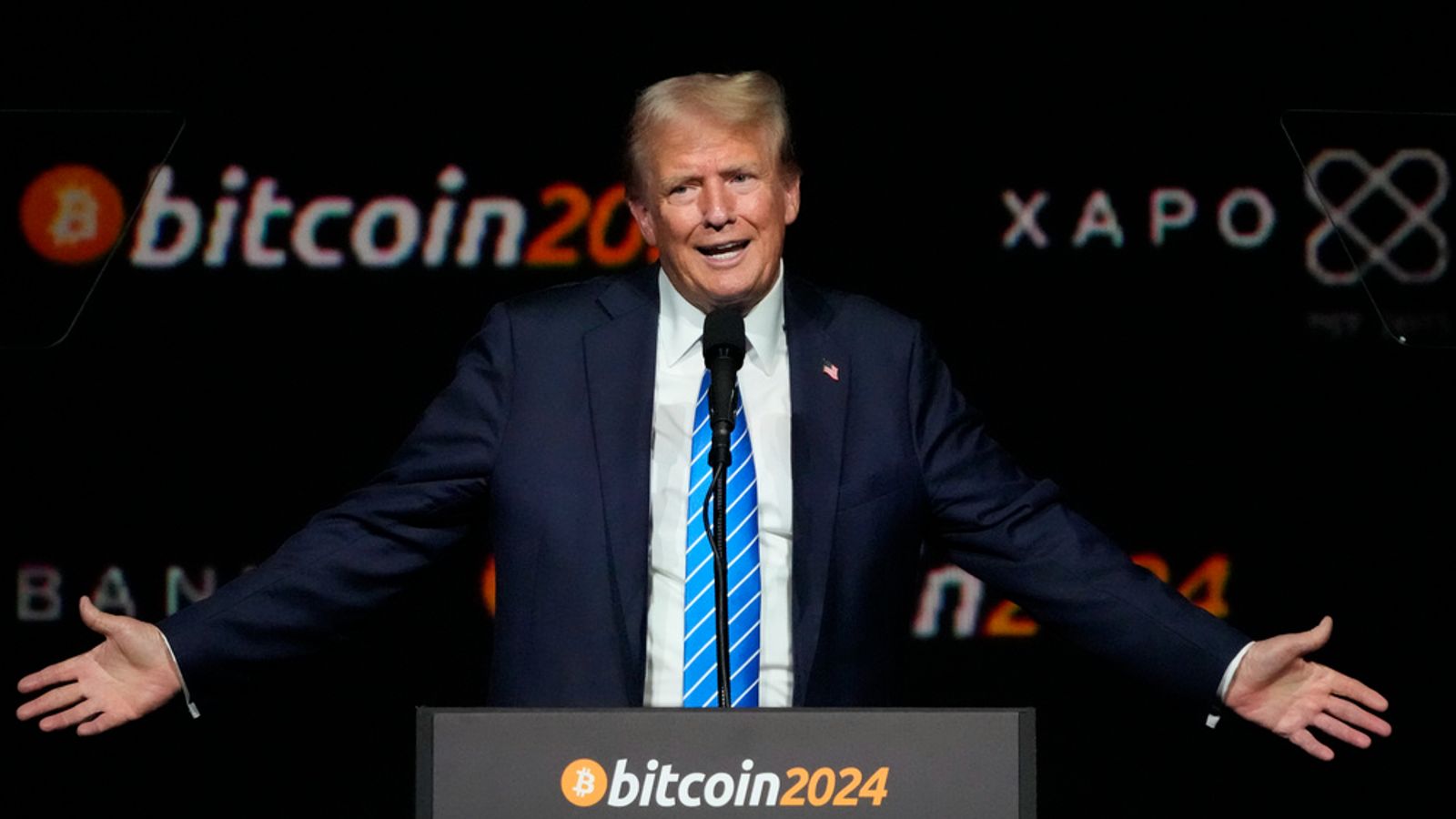Trump’s Connection to Cryptocurrency and Wealth Accumulation
During a recent Bitcoin conference in Nashville, Tennessee, Donald Trump highlighted the connections between wealth, politics, and corruption. The discourse around wealth in the political sphere has often drawn comparisons to historical critiques, notably those by Karl Marx. In his work “The Class Struggles in France, 1848-1850,” Marx discussed how the elite manipulated societal structures for personal gain, reflecting on the rampant greed and moral decay that can accompany such power. Today, these themes resonate strongly with the current political landscape, particularly concerning the Trump family’s dealings and influence.
The Trump Family’s Financial Ventures
The Trump family has long been scrutinized for instances of perceived corruption, particularly during Donald Trump’s first presidency. His administration saw the use of Trump-branded properties as venues for corporate and foreign entities to funnel money into the family’s wealth. This controversy intensified with the involvement of his son-in-law, Jared Kushner, who reportedly secured over a billion dollars in investments from wealthy foreign nationals, especially from Saudi Arabia.
Financial Gains Post-Election
Following Trump’s reelection in November, reports indicate that the Trump family’s financial status has significantly improved, with estimates suggesting their wealth might have doubled since the election. Despite a lack of advertising and a limited customer base, Trump’s social media venture, Truth Social, has experienced a dramatic increase in stock value. Additionally, the sale of various branded merchandise has generated substantial income, while Trump has amassed $500 million in political contributions for future campaigns, despite constitutional limitations on serving more than two terms.
Cryptocurrency Endeavors and World Liberty Financial
A notable financial development for the Trump family is their foray into the cryptocurrency sector through World Liberty Financial, a venture in which they hold a 60% stake. This company is managed by Donald Trump’s sons, Don Jr. and Eric, and seeks to capitalize on partnerships with firms that operate under regulatory oversight from agencies now led by Trump appointees. Initially, World Liberty struggled to gain traction, but following Trump’s electoral win, the company’s cryptocurrency, known as $WLFI, surged in value, with estimates of the family’s total crypto wealth ranging from $2.9 billion to $6.2 billion.
Shifting Norms in Political and Financial Boundaries
The New York Times highlighted how World Liberty, largely controlled by the Trump family, has blurred the lines between governmental policy and private enterprise, a deviation from longstanding presidential norms. Trump has transformed from a critic of cryptocurrencies to a significant player in the industry, leveraging his position to benefit both the crypto market and his personal business interests, despite previously denouncing it as a domain for illicit activity.
Influence and Regulatory Decisions
The Trump administration’s ties to the cryptocurrency market have raised concerns about potential conflicts of interest. Some wealthy investors have reportedly utilized World Liberty to secure favorable regulatory outcomes in exchange for substantial investments. A notable instance involved Chinese crypto entrepreneur Justin Sun, who made a significant purchase of $WLFI shortly before the Securities and Exchange Commission, led by a Trump appointee, ceased legal proceedings against him for a fraud case.
Memecoins and Speculative Ventures
Trump’s introduction of memecoins, cryptocurrencies linked to jokes or personalities, has drawn criticism for its speculative nature, akin to a Ponzi scheme. These tokens, lacking intrinsic value, have led many investors to incur significant losses. Despite the financial misfortunes experienced by numerous small investors, Trump appeared more focused on the interests of larger investors, hosting events to engage them while dismissively downplaying the losses of his supporters.
Legal and Ethical Implications
Concerns regarding the legality of Trump’s actions, including the potential violation of the emoluments clause of the Constitution, have surfaced, yet legal repercussions remain minimal. Past court rulings have granted presidents broad immunity from prosecution during their tenure, creating a lack of accountability for actions benefiting their financial interests. Moreover, a recent executive order has directed the Justice Department to limit criminal investigations related to digital assets, further shielding the president from scrutiny.
International Transactions and Corruption Legacies
Recently, the state investment fund of the United Arab Emirates announced a $2 billion investment in a new cryptocurrency coin from World Liberty Financial, coinciding with discussions about easing restrictions on AI chip sales to the UAE. This relationship underscores a longstanding history of corruption in American politics. Historical scandals reveal a pattern of political figures leveraging their positions for personal gain, yet the current administration has taken this to unprecedented levels, with Trump exemplifying a government increasingly serving the interests of the wealthy elite.
A New Era of Political Corruption
The Trump administration is characterized as one deeply intertwined with billionaire interests, employing questionable and undemocratic tactics to maintain its power and enrich those it represents. As discussions continue around the implications of this blending of wealth and politics, the consequences for American democracy remain a topic of significant concern.

